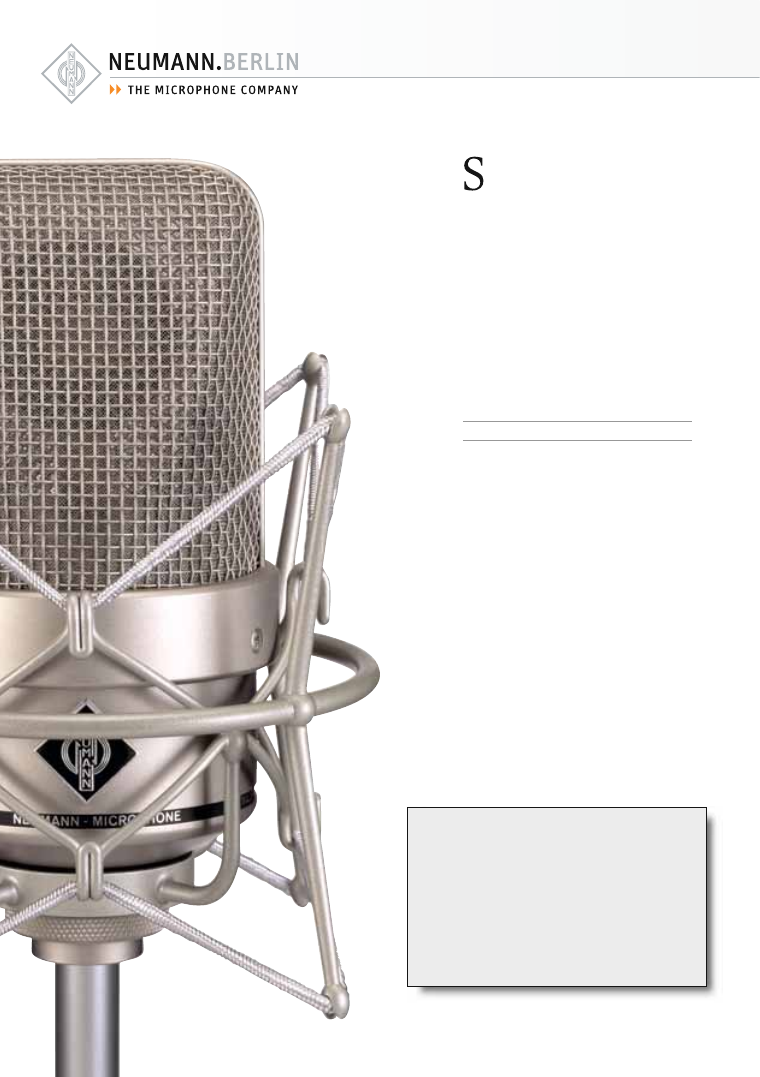
36
The design of the microphone
is a registered design of
the Georg Neumann GmbH
in certain countries.
Features
•All Titanium capsule
•Unparalleled transient
accuracy
•Pressure omni capsule for
extended low frequency
response
•Modern version of the world-
famous M 50
•Very low self noise of 15 dB-A
•Transformerless tube
amplifier based on the
award-winning M 149 Tube
microphone
•Ideal for DECCA tree
recording and surround
miking techniques
•Stereo sets with consecutive
serial numbers
ince the 1950s, the Neumann M50 has
been heralded as the ideal microphone for
orchestral recording and string scoring. With
its phenomenal transient response and
unique directional characteristic, this classic
mic has endeared many fans, both in the con-
trol room and on the soundstage.
The new M 150 Tube takes many of the fea-
tures from the original M 50 and incorporates
them in a very modern microphone. With low
self noise, a Titanium membrane and capsule,
transformerless tube amplifier and sophisti-
cated power supply, the M 150 Tube is not a
reissue but an entirely new microphone in its
own right.
Acoustical features
The Titanium diaphragm of the pressure cap-
sule is 12mm in diameter and is exceedingly
thin. Although Titanium has been known to
have unique and desirable characteristics for
some time, it has, until very recently, been very
difficult to procure in the quality necessary for
use in a microphone of this type.
The headgrille is shaped just like that on the
original M 50, as requested by various top en-
gineers in the recording industry. Due to
mounting the pressure capsule with the dia-
phragm flush to the surface of a small (40 mm)
sphere, the directional characteristic of the
M150 Tube is entirely unique.
At the lowest frequencies, this system is a
pure omnipressure transducer with a perfect-
ly circular polar pattern. However, in the mid-
and upper frequencies, the pickup pattern be-
comes more narrow.
The M 150 Tube is an ideal microphone for any
stereo, 5.1 or 7.1 surround recording, particu-
larly DECCA Tree technique.


















